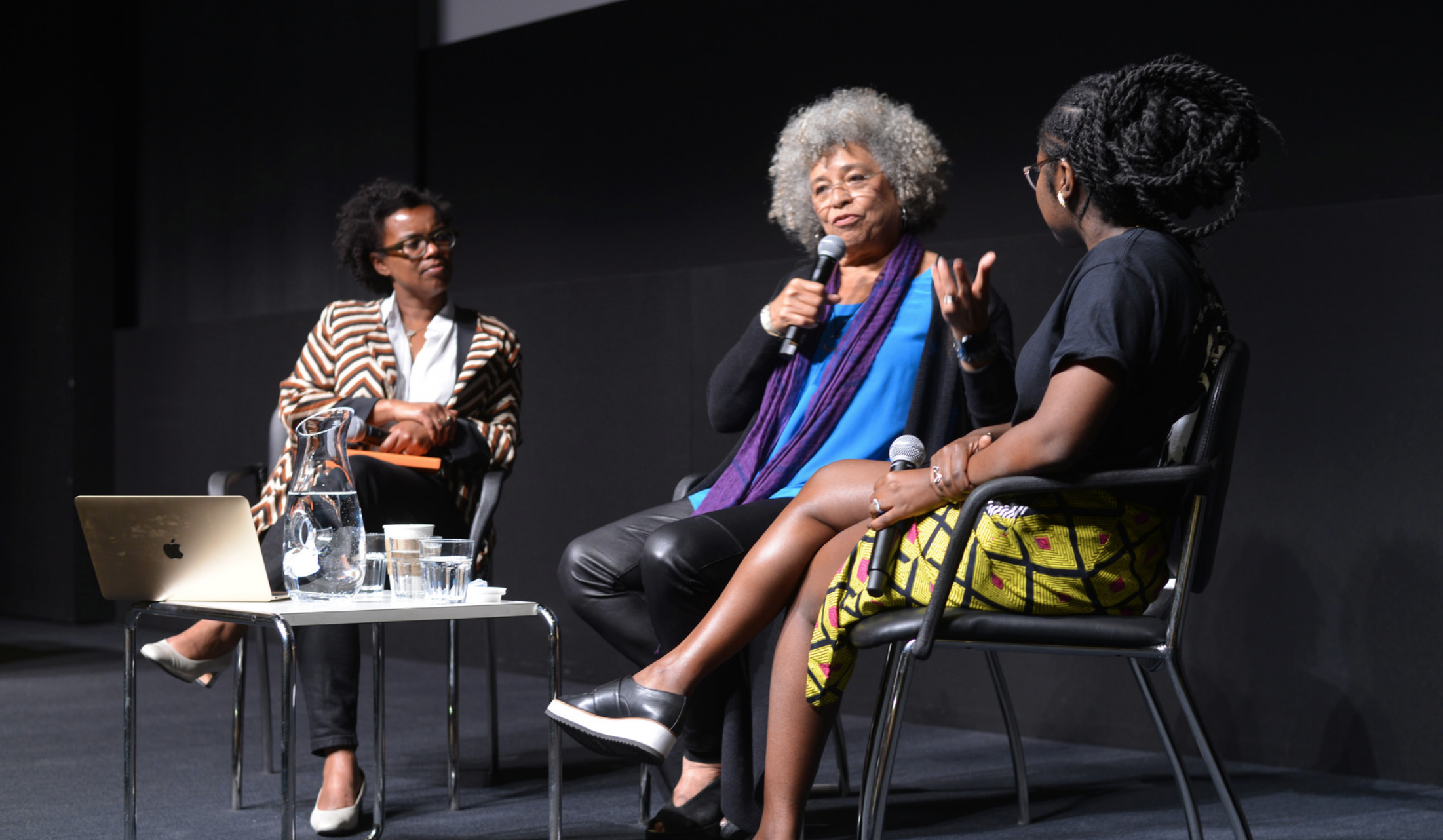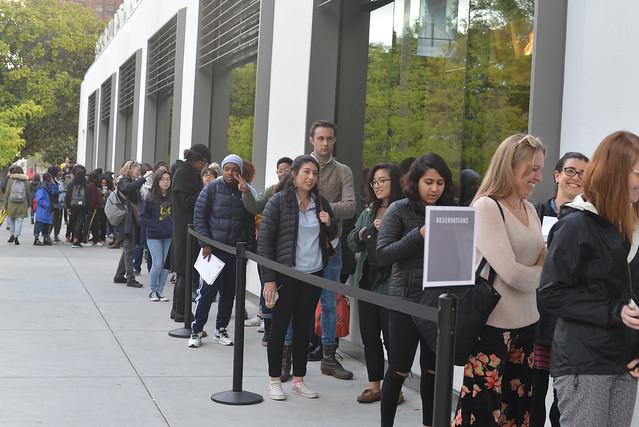ATC Revisited: Angela Davis

Recap by KC Forcier, the 2017-2018 Graduate Liaison for the Art, Technology, and Culture Colloquium.
"Abolition Feminisms" - Angela Davis on Social Justice and Activism
The final ATC lecture of the year brought together three generations of activist scholars. Leigh Raiford, Associate Professor of African American Studies at Berkeley and Malika Imhotep, a doctoral student here at Berkeley in African American Studies and New Media, hosted a conversation with Dr. Angela Davis, the deeply influential activist and academic. The conversation brought together many threads of Davis’ work, from a career spanning nearly fifty years of teaching, writing and organizing on issues related to race and gender in America and worldwide.
The discussion began with a subject which has been central to Davis’ activism in recent years – the struggle to dismantle the prison industrial complex – and its relationship to feminism, another key theme of Davis’ work. Davis acknowledged the fraught relationship between feminism and the movement to abolish prisons: criminalizing domestic violence was an important victory for feminists in the 1970s, after all, and many continue to advocate for increased accountability for crimes against women. At the same time, Davis argued for the necessity for “Abolition Feminism”, which recognizes the important role black women play in prison reform, a movement which is ultimately essential to social justice for all genders.
The intersection of gender and race is an important theme of Davis’ work, although she admits to having an ambivalent relationship to the concept of intersectionality. “We ask that term to do so much more than it is capable of,” she says. “Our terms do not reflect the messiness of social realities.” Davis suggested a more expansive use of the concept of intersectionality, one that foregrounds resonances across groups. An “Intersectionality of Struggles” acknowledges solidarity amongst communities that may be geographically diverse yet share a common struggle: linking efforts for Palestinian statehood with indigenous movements worldwide, for instance. Davis suggested that one’s political affinities may bring one closer to someone across the globe than to those in one’s immediate midst.
Communication amongst such far-flung groups is more of a reality today due to new media technologies, which not only make it possible to connect globally, but also circulate information which may allow resonances to become apparent. Davis cited the example of photographs circulating on the internet of canisters of tear gas used against protestors in Palestine, which activists in Ferguson recognized as the same as those used against them. In this light, technology certainly has a role to play in activism. When organizing in 1970, Davis and her collaborators couldn’t afford long distance telephone calls: they wrote letters to coordinate and mobilize their community. “If we had had these new forms of social media, we would have had a revolution,” Davis proclaimed.
Yet she cautions that new technologies are not the panacea to social justice movements they are sometimes claimed to be. “We fail to ask how new technologies affect how we think, how we do our work.” We are being used by these technologies, not just in the sense that our personal information is what is for sale, but also in that they change the way we understand the world. Davis expressed concern that political organizers may confuse Facebook likes with genuinely mobilizing people. We need to use these new technologies, Davis agrees, but critically. “We need to critically engage with the tools that we use,” she said. “We cannot let technology absolve us of the ability to think, to feel.”
More than once over the course of the evening did Davis stress the need to embrace and to be critical at the same time. She ended on a hopeful note, reminding the assembled crowd that as important as it is to be critical of the institutions that perpetuate injustice, we must also be able to believe in a better future. In order to abolish prisons, she claims, “We need to imagine a world in which people are not driven to murder,” as difficult as that may sound. She stressed the importance of celebrating victories, of believing in change. In almost a half-century of activism, Davis has seen monumental change, but has also seen how difficult and how incremental it can be.

